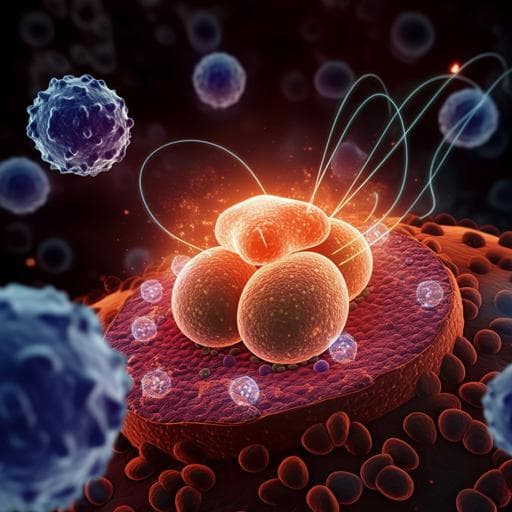
Medicine and Health
PSCA-CAR T cell therapy in metastatic castration-resistant prostate cancer: a phase 1 trial
T. B. Dorff, M. S. Blanchard, et al.
A groundbreaking phase 1 study explores PSCA-directed CAR T cells in men with metastatic castration-resistant prostate cancer (mCRPC), revealing potential declines in PSA and radiographic improvements, despite safety challenges. This innovative research was conducted by a dedicated team of authors, including Tanya B. Dorff and M. Suzette Blanchard.
Related Publications
Explore these studies to deepen your understanding of the subject.







